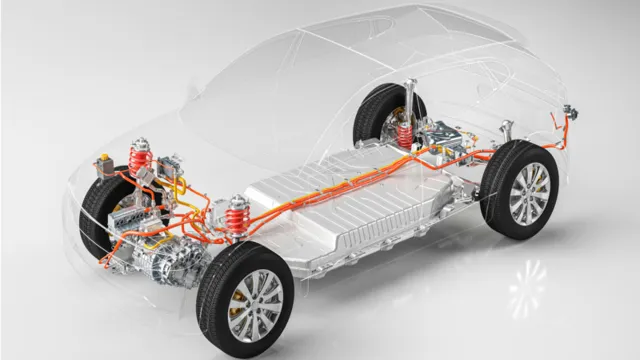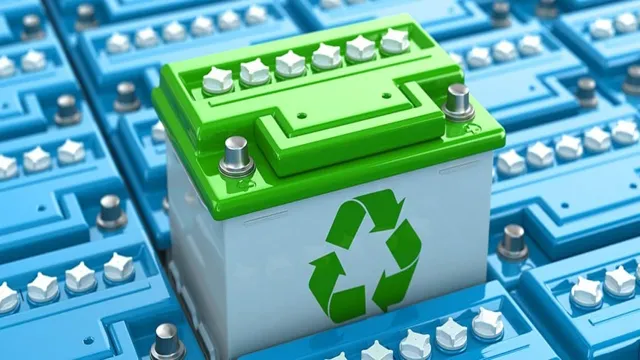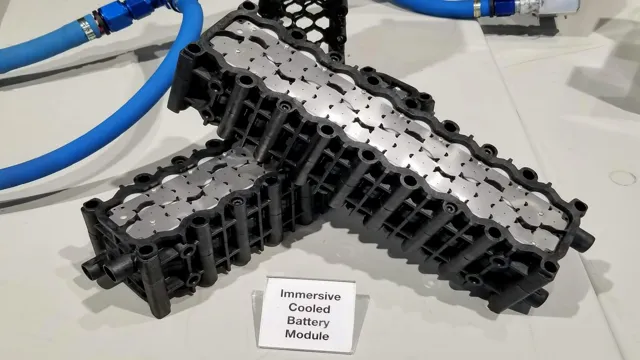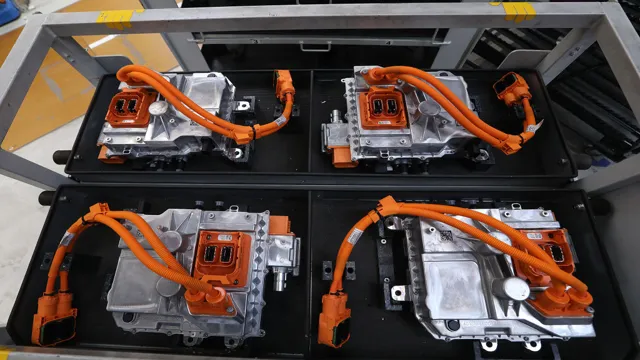Eco-Friendly Power: The Truth About Electric Car Battery Emissions
Have you ever considered the environmental impact of electric cars? While we often praise electric vehicles for being more eco-friendly than their gas-guzzling counterparts, there’s still a lot to unpack when it comes to their overall sustainability. One aspect to consider is the production and disposal of electric car batteries, which can emit a significant amount of greenhouse gases. Understanding the emissions associated with electric car batteries is crucial for making informed decisions about our transportation choices.
So, what exactly do we know about electric car battery emissions, and how can we work towards a more sustainable future? Let’s dig in.
Introduction: Understanding Electric Car Emissions
Electric car battery emissions have become a hot topic in recent years due to the increasing demand for eco-friendly transportation solutions. While electric cars are widely known for producing zero emissions while driving, some critics argue that the emissions from producing the batteries and generating electricity to power the vehicles outweigh the benefits. It is true that electric car batteries have a higher carbon footprint than traditional car batteries because of the materials used in their production.
However, studies have shown that the emissions from an electric car’s battery production and electricity generation are still significantly lower than those produced by gasoline cars. Furthermore, as the production of electric car batteries continues to improve, their carbon footprint is expected to decrease even further. Ultimately, electric cars remain a greener alternative to gasoline cars, and their emissions are just one of the many factors to consider when evaluating their environmental impact.
Exploring the Carbon Footprint of Battery Production
When we think of electric cars, we often assume that they are automatically better for the environment than traditional gas-powered vehicles. However, the truth is that electric cars are not entirely emissions-free. One of the most significant factors contributing to their carbon footprint is the production of their battery.
The process of producing batteries requires a considerable amount of energy, which often comes from non-renewable sources – resulting in substantial emissions of greenhouse gases. This presents an interesting dilemma. While electric cars are arguably better for the environment in terms of driving emissions, they may not necessarily have a smaller overall carbon footprint.
In this blog post, we will explore the carbon footprint of battery production and better understand the environmental impact of electric cars.

Comparing Emissions between Electric and Gasoline Cars
Electric car emissions have become a hot topic in recent years, with many people interested in how they compare to traditional gasoline cars. When it comes to the carbon emissions produced by an electric car, there are a lot of variables at play. On the one hand, an electric car produces zero emissions from its tailpipe, which is a significant advantage over gasoline cars.
However, the carbon footprint of an electric car depends on how the electricity used to power it is produced. If the electricity comes from renewable sources like wind or solar power, then the emissions from an electric car are virtually zero. On the other hand, if the electricity comes from coal-fired power plants, then the emissions from an electric car can be higher than those from a gasoline car.
It’s important to understand the broader context of electric car emissions and the factors that influence them to make informed decisions about our transportation choices.
Ways to Reduce Electric Car Battery Emissions
Electric car battery emissions can be reduced in several ways that can make electric cars even more eco-friendly. Firstly, choosing an electric vehicle that uses a battery made from recycled materials can greatly decrease emissions related to the manufacturing process. Additionally, charging an electric car with renewable energy sources like solar power can also significantly decrease carbon emissions.
Buying a more energy-efficient electric car charger and avoiding charging during peak hours can also help reduce emissions. Finally, proper maintenance of electric cars, including regular tire inflation, can further improve fuel efficiency and reduce overall emissions. By adopting some or all of these strategies, electric car owners can help promote sustainable transportation and protect the environment.
Choosing Low-Emission Electricity Sources
As electric vehicles become more mainstream, it’s important to consider ways to reduce emissions even beyond the car itself. Choosing low-emission sources of electricity can make a significant difference in the overall carbon footprint of an electric car. One option is to look for utilities that use renewable energy sources, like wind or solar power.
Installing solar panels on your own home can also be a great way to directly power your car with clean energy. Another option is to participate in time-of-use pricing plans, which incentivize customers to use electricity during off-peak hours when renewable sources may have excess capacity. It’s also worth considering the efficiency of your home’s insulation and appliances, as reducing overall energy consumption can further decrease emissions from electricity sources.
By being mindful of where your electricity comes from, you can ensure that your electric car is truly an environmentally-friendly choice.
Increasing Battery Efficiency
Electric car battery emissions have been a point of concern since the introduction of electric vehicles. However, there are ways to reduce these emissions and increase battery efficiency. One way is to use lighter materials in the car’s design, reducing the weight that the battery must power.
Additionally, improving the battery’s energy density and charging ability can also help reduce emissions. Smart charging technology can allow for charging during off-peak hours when electricity is generated from cleaner sources, further reducing emissions. By implementing these improvements, the overall efficiency of electric car batteries can be increased, ultimately leading to a more sustainable future for transportation.
Promoting Sustainable Materials in Battery Production
Electric car battery emissions are a significant contributor to climate change, and reducing them is vital. One of the ways to do so is by promoting sustainable materials in battery production. Currently, most electric car batteries are made using materials that have a significant environmental impact, such as cobalt and nickel.
However, researchers are exploring alternative materials like lithium-iron-phosphate, which have a much lower carbon footprint. In addition to using sustainable materials, recycling and reusing batteries can also help reduce emissions. This approach ensures that materials used in batteries aren’t discarded after they reach their limit and unlocks the value of recyclable materials in batteries.
Sustainability has become a buzzword in the auto industry, and promoting sustainable materials in battery production is one of the ways electric cars can help mitigate their environmental impact.
The Future of Electric Car Battery Emissions
The future of electric car battery emissions is a hot topic in the automotive industry right now. While electric cars are viewed as a more eco-friendly alternative to their gas-guzzling counterparts, the production and disposal of their batteries can have negative environmental impacts. However, advancements in battery technology and recycling processes are providing hope for a more sustainable future.
Companies are investing in new battery materials such as solid-state batteries, which are safer, longer-lasting, and emit fewer pollutants during production. Additionally, efforts to improve the recycling of old batteries are reducing the amount of waste produced from these vehicles. Still, there is work to be done to minimize the environmental footprint of electric car battery emissions, but the future looks promising as the industry continues to prioritize sustainability.
Innovative Technologies and Sustainable Solutions
As electric cars become more popular, one issue that concerns environmentalists and regulators alike is the amount of emissions created by the production of their batteries. However, there is hope on the horizon, as numerous companies are exploring innovative new technologies to address this problem. For example, some manufacturers are experimenting with new ways to recycle old batteries, which can help limit the amount of waste that ends up in landfills.
Others are developing new battery materials that are less harmful to the environment than traditional lithium-ion batteries. By continuing to invest in sustainable solutions, we can help mitigate the potential negative impacts of electric vehicles and ensure a cleaner, greener future for all.
Impact of Government Regulations and Incentives
As electric cars become more popular, there has been a growing concern about the emissions produced by their batteries. But the good news is that government regulations and incentives are pushing for improvements in battery technology. For example, the European Union is pushing for a 30% reduction in carbon emissions from cars by 2030, which will encourage car manufacturers to use cleaner energy sources and battery materials.
Additionally, many countries offer tax incentives and rebates for buying electric cars, making them more affordable and accessible to the public. As a result, the future of electric car battery emissions looks promising, as more and more resources are being invested in developing cleaner and more sustainable technology. In the coming years, we can expect to see a significant reduction in the carbon footprint of electric cars, benefiting both the environment and the consumer.
Conclusion: Driving towards a Greener Future
In conclusion, the electric car battery emissions debate ultimately boils down to one simple fact: electric vehicles may not be perfect, but they are a far better alternative to traditional gas-guzzling cars when it comes to reducing our carbon footprint. Sure, producing batteries for EVs can result in some emissions, but the overall benefits of driving electric – from reducing greenhouse gases to lowering our dependence on fossil fuels – far outweigh any potential drawbacks. So the next time someone tries to argue that electric cars aren’t as clean as they claim to be, just smile and remind them that every little bit counts – even the tiniest emissions reduction can make a huge difference in the fight against climate change.
“
FAQs
What is an electric car battery and how does it work?
An electric car battery is a rechargeable battery that powers an electric car’s motor. It works by storing electrical energy that is converted into kinetic energy for the vehicle.
How do electric cars reduce emissions?
Electric cars reduce emissions by using a battery-powered motor instead of a combustion engine. As a result, they produce zero tailpipe emissions, which eliminates carbon dioxide and other harmful pollutants.
How long do electric car batteries last and how much do they cost to replace?
Electric car batteries can last between 8-10 years on average, depending on the model and usage. The cost to replace a battery can vary from $5,000 to $20,000, depending on the make and model of the car.
Are there any environmental concerns with the production of electric car batteries?
Yes, the production of electric car batteries can have environmental concerns, specifically related to the mining and extraction of the materials used to make the batteries. However, advancements in battery technology are being made to reduce these concerns.





